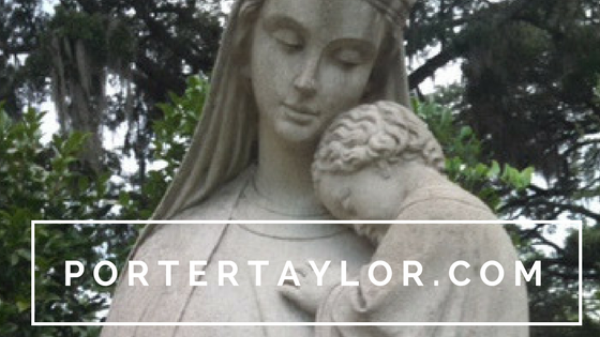Seeing with the Eyes of the Heart
In Western North Carolina we have had snow and cold. We are not Maine or North Dakota so it was hardly a blizzard, but it doesn’t take much to put everything to a stop. Jo and I live on five acres of land in a development that is on a non-public road. So, Sunday morning, I began shoveling our driveway with images of heart attacks in my mind. One of my neighbors has a fancy tiller with a plow on the front and he helped. Since both of us are over sixty, we rested often. We talked about the day, the Christmas some years ago that was a blizzard, our kids, when to plant gardens. As we talked, another neighbor had hitched up a plow to the front of his tractor and was plowing our street. And in a quiet way, it felt as if God’s kingdom had drawn near.
I was thinking about this yesterday when I read the words from the Epistle in the Morning Office: “I pray that the God of our Lord Jesus Christ, the Father of glory, may give you a spirit of wisdom and revelation as you come to know him, so that, with the eyes of your heart enlightened, you may know what is the hope to which he has called you” (Ephesians 1).
My neighbors and I have little in common. We don’t talk about our work or politics. We don’t talk about religion. However, there are times when our pace stops; we come out of our bubbles and “the eyes of our hearts [are] enlightened” and the kingdom comes near. On a snow day, it doesn’t matter how you voted or how you have mapped the world. We all want a clear road that connects us to community and one another, and the truth is we can’t clear that by ourselves.
When it snows, there aren’t Democrats or Republicans; there are just humans, citizens, fellow men and women on the path trying to find our way. In this age of division and sometimes anxiety, suspicion and rancor, my hope is that we remember it’s always snowing. Every day we need to help one another clear a path. We need to help each other connect our driveways to the common thoroughfare so that we find our way to the city of the New Jerusalem—which is our common destination.
A passage from O’Bama’s speech last night that lifted me up: “Presuming a reservoir of goodness in others can be a risk, and there will be times when this disappoints you. But…it can energize and inspire. And more often than not, your faith…will be confirmed.”
That presumption of goodness in others opens us up for God to make “the eyes of our hearts” be “enlightened” so that we might remember “the hope to which God has called us.” The truth is somewhere it’s always snowing, and we are called out of our little boxes to the common road that leads—if we can see with the eyes of our hearts---to the New Jerusalem.
+Porter






